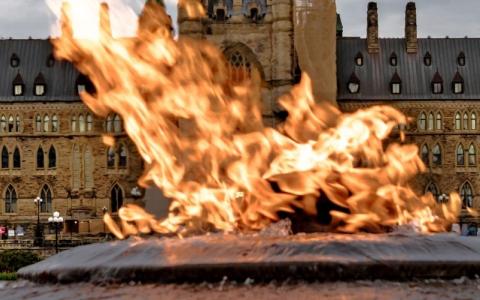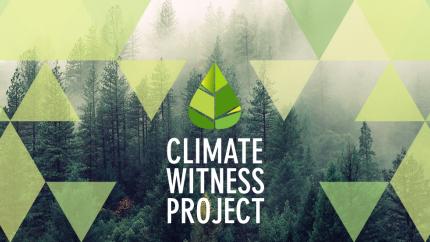
Sign up for our regular email for updates on ministry in Canada.
Climate change is happening, and it is already affecting people worldwide, such as Kenyan farmers who are grappling with changing weather patterns, and the Inuit people in Canada’s north whose traditional livelihoods are being affected by changing ice and animal-migration patterns. What does that have to do with our faith? Quite a bit.
The scientific consensus is broad and strong. Climate change is caused almost exclusively by human activities, especially the use of fossil fuel based energy. It is increasingly having serious effects on the Earth’s ecological balance and on its ability to support human life.
Canadians are especially voracious consumers of energy in comparison to almost other countries around the world. We have a special responsibility to cut back significantly on our consumption, for the good of all.
The effects of climate change are already serious—many experts such as the National Oceanic and Atmospheric Administration are now seeing connections between the conflict in Syria and four years of devastating drought in the nation from 2006 to 2010, which pushed over 1.5 million Syrians off their land and into crowded cities, where the conditions for conflict were ripe. We are already seeing refugee movements related to climate change.
We have been inspired by movements such as Idle No More, an Indigenous movement started by women in response to the removal of legal protection from hundreds of waterways across the country in 2012. “Indigenous peoples have incredible gifts to share with the world, especially when it comes to matters of creation care. Indigenous peoples have been stewarding the land for millennia, in many cases long before Europeans arrived in their countries. We carry an ancient wisdom that helps us to live well, to preserve, protect, and respect the earth,” says Michelle Nieviadomy, a Cree woman who works at one of our partner ministries, the Edmonton Native Healing Centre.
Creation sings a song of praise to the Creator! “The heavens declare the glory of God; the skies proclaim the work of his hands,” writes the psalmist (Ps. 19:1). If you have hiked through a pine forest on the Canadian shield, felt the power of the ocean breakers at Peggy’s Cove, or gazed at the expanse of golden poplars in autumn from a Yukon mountaintop, perhaps you have heard creation declare Creator God’s praises.
When humanity sinned, creation too began to feel the effects of this brokenness—Paul even writes that all of creation is “groaning as in the pains of childbirth” (Rom. 8:22). Confronting the challenge of climate change is both a political and a spiritual challenge—we need to repent of our overuse of fossil fuels and prioritize the common good, particularly the good of the most vulnerable, in order to move away from a broken energy model toward a more stewardly way of living on the earth.
As Christians who are called to steward the earth and care for the poor, we should be leaders in the fight against climate change. Too often Western Christians have forgotten this call and have seen the earth instead simply as a stockpile of resources. Many Indigenous cultures know that we cannot elevate “spiritual” things above “natural” things—often Indigenous cultures honour the Creator’s world much better than Western ones have. The fractures caused by sin are many—in our broken relationship to creation, we have divided Indigenous and non-Indigenous Canadians—and this rift has kept settler Canadians from learning Creator-honouring earth stewardship from Indigenous peoples.
We work and wait for Christ’s reconciliation of all things (Col. 1:19-20), to restore our broken relationships so that we all, together with creation, may again sing Creator God’s praises.

